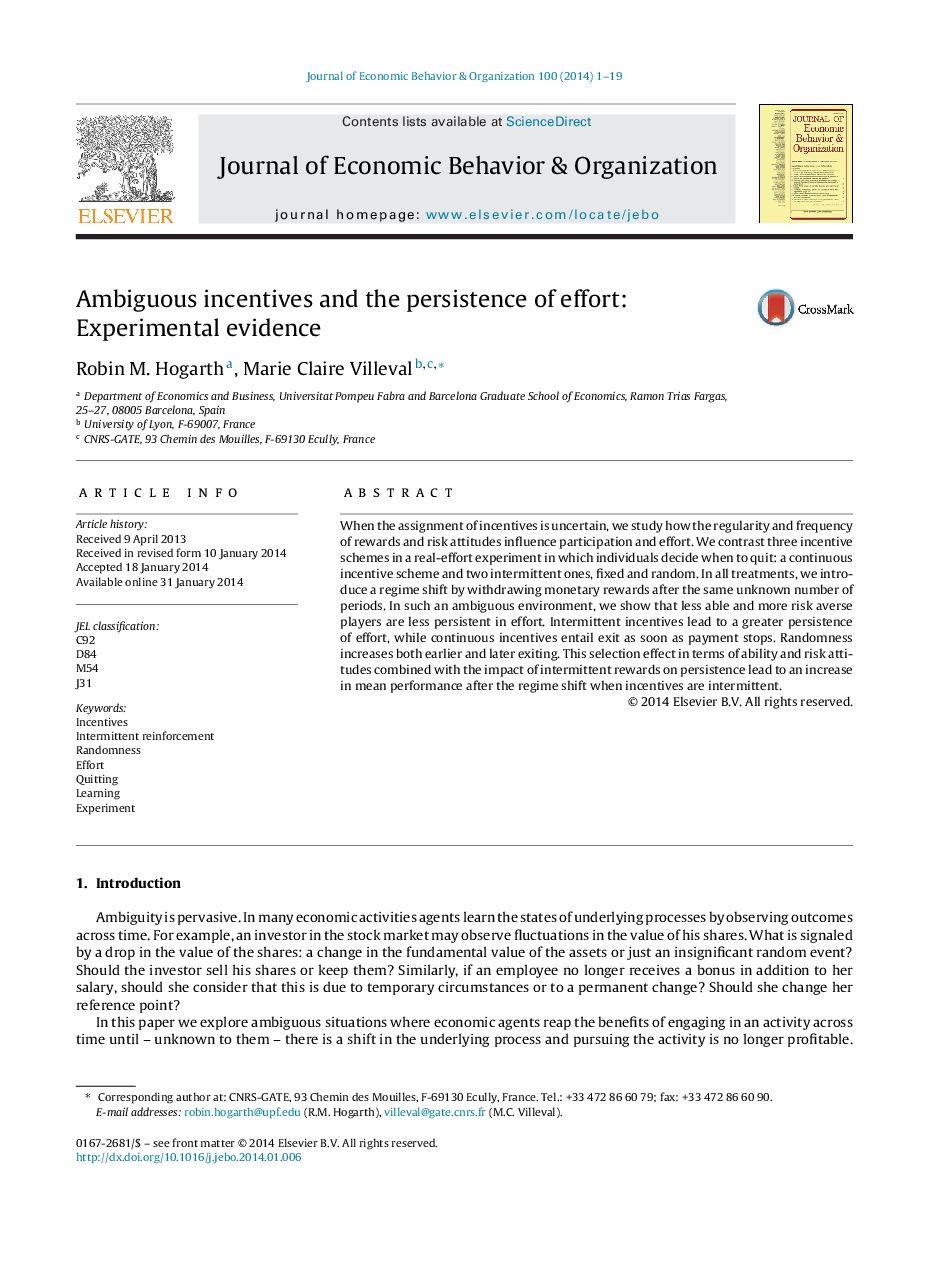| Article ID | Journal | Published Year | Pages | File Type |
|---|---|---|---|---|
| 883538 | Journal of Economic Behavior & Organization | 2014 | 19 Pages |
•We study participation decisions and effort when the assignment of incentives is uncertain.•We contrast three incentive schemes: a continuous and two intermittent schemes, fixed and random.•We introduce a regime shift after which all rewards are removed definitely.•Under ambiguity, risk aversion and ability are the main determinants of exiting decisions before the regime shift.•Intermittent incentives are associated with a greater persistence of effort after the regime shift for the remaining workers. Randomness leads to more extreme behavior.
When the assignment of incentives is uncertain, we study how the regularity and frequency of rewards and risk attitudes influence participation and effort. We contrast three incentive schemes in a real-effort experiment in which individuals decide when to quit: a continuous incentive scheme and two intermittent ones, fixed and random. In all treatments, we introduce a regime shift by withdrawing monetary rewards after the same unknown number of periods. In such an ambiguous environment, we show that less able and more risk averse players are less persistent in effort. Intermittent incentives lead to a greater persistence of effort, while continuous incentives entail exit as soon as payment stops. Randomness increases both earlier and later exiting. This selection effect in terms of ability and risk attitudes combined with the impact of intermittent rewards on persistence lead to an increase in mean performance after the regime shift when incentives are intermittent.
